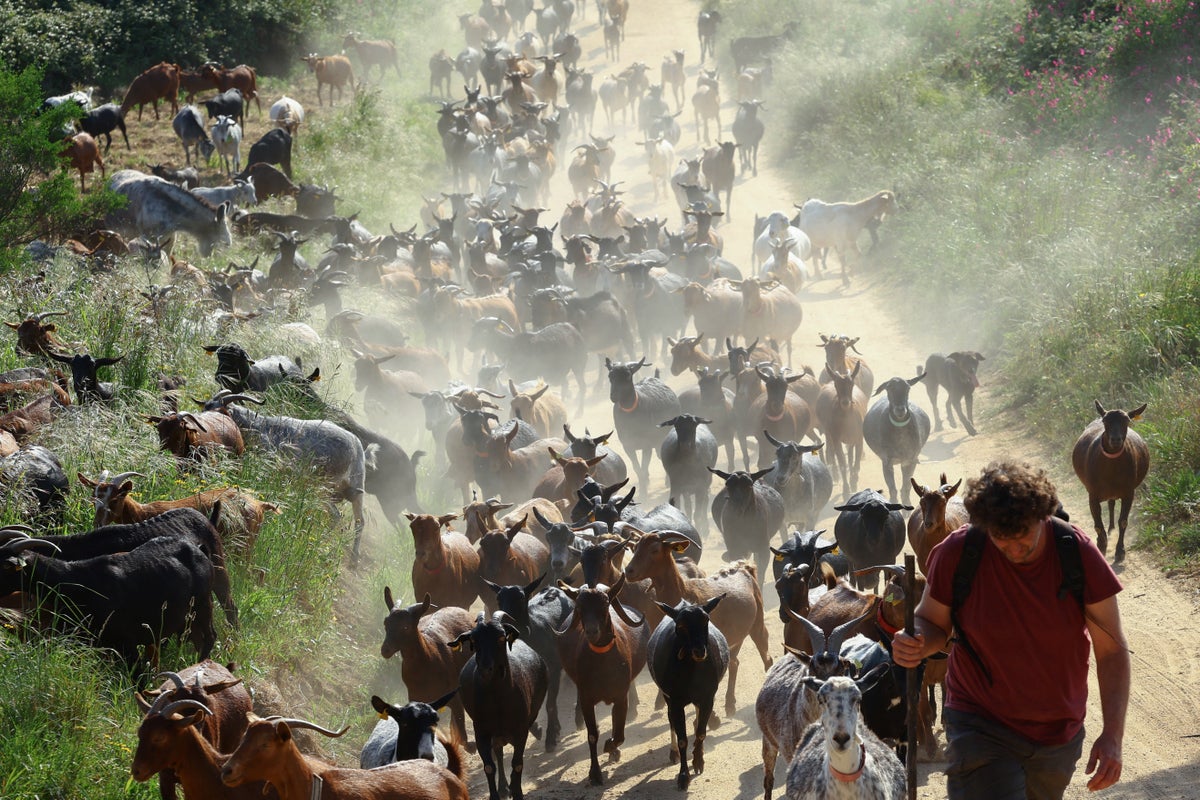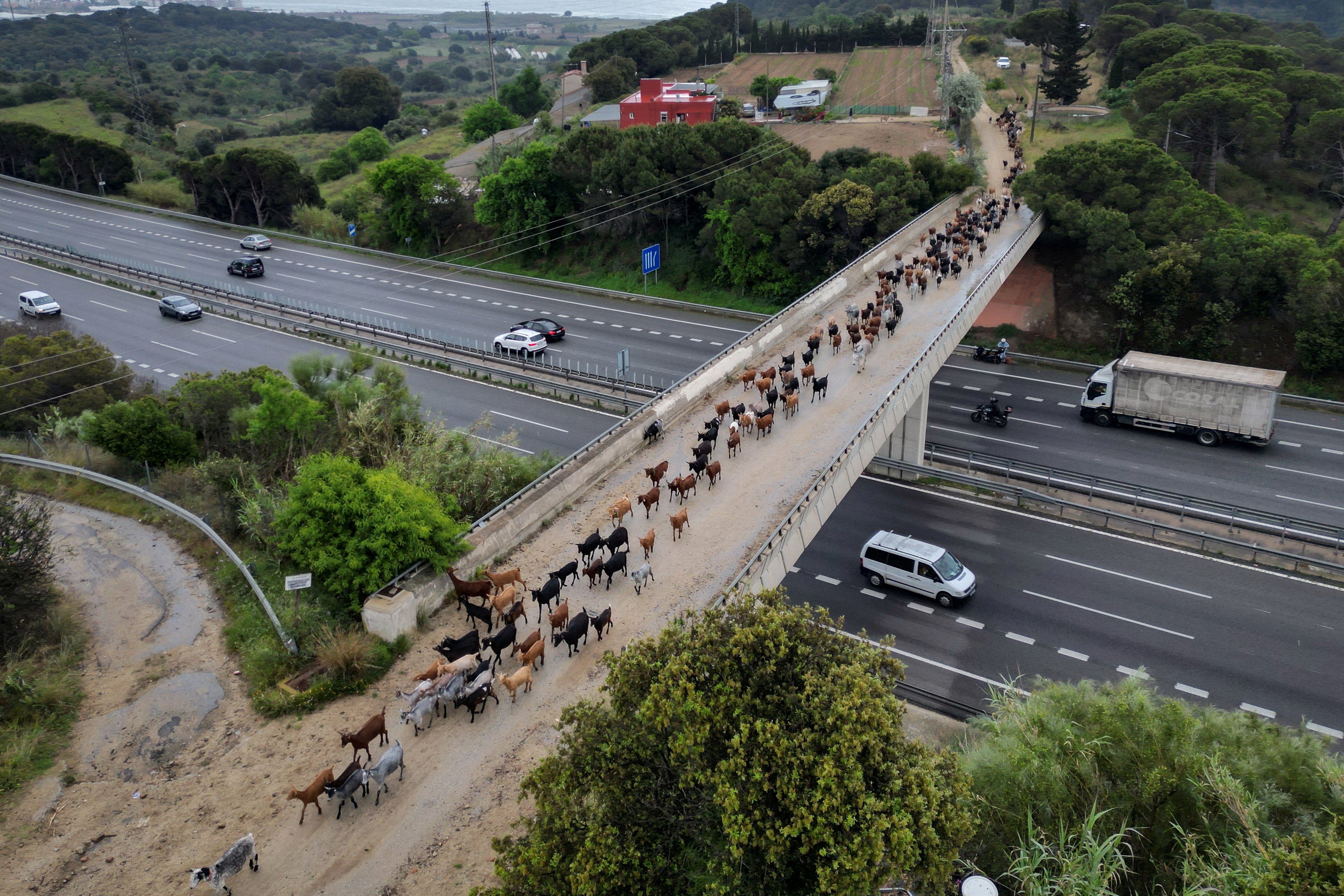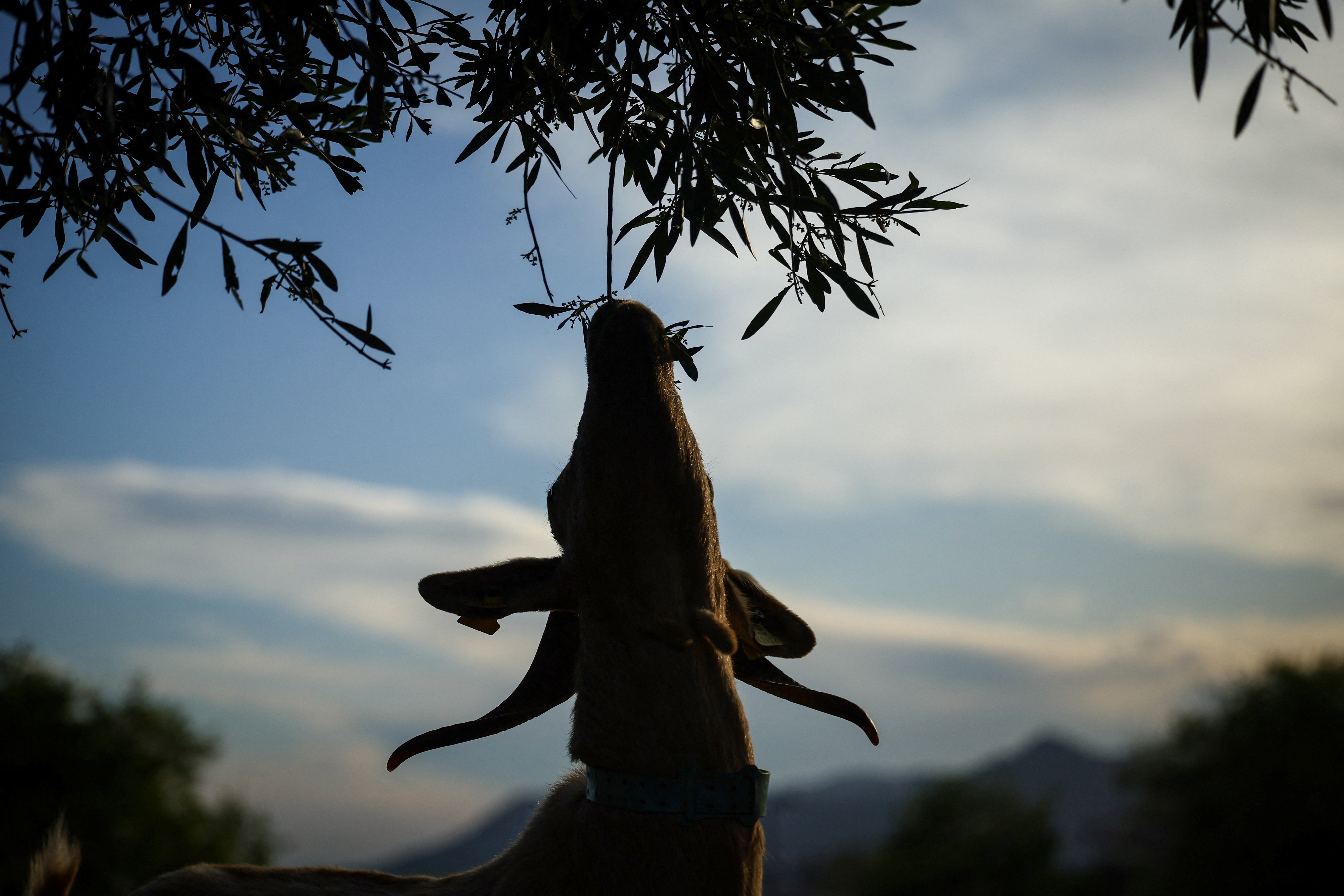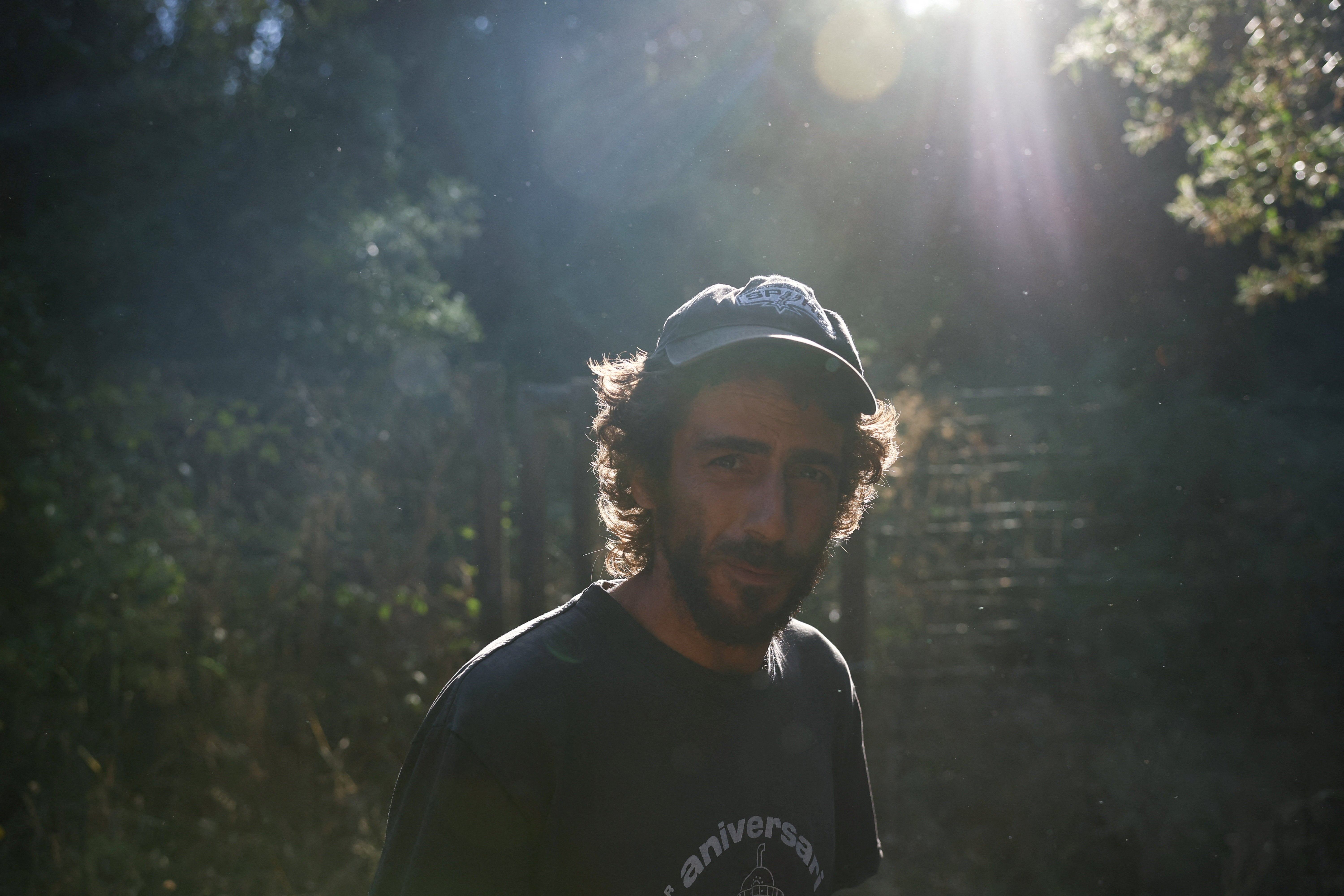
Amid a symphony of tinkling bells, some 300 black, brown and dappled goats trot along a paved road in Spain's northeastern Catalonia region, stopping every now and then to nibble with gusto on the dry shrubs lining the edge of a forest.
The herd wandering from town to town is part of a pilot project set up in the city of Mataro, which forms part of a broader European Union-funded effort to mitigate the risk of wildfires.
Jose Antonio Ricis, Mataro's local councillor in charge of agriculture, said the project was a success and was "here to stay".
Each summer, scorching heat sparks wildfires in countries across southern Europe ravaging vast swathes of land as climate change intensifies. In Catalonia last year, despite being in the third year of the worst drought in a century, the number of outbreaks decreased, with the regional government attributing the decline to improved fire prevention measures, of which goats are just one part.
Goats are known for their voracious appetites, even feeding on thorny plants like cacti or thistles, making them ideal for clearing brush and other combustible materials to create natural firebreaks.
The practice of using livestock to clear flammable undergrowth dates back centuries, but some farmers are turning away from machines favoured in modern times and back to goats and other animals in search of more sustainable farming techniques. In Spain's Galicia region, wild horses perform the job.

Whistling in short bursts, Francesc Teixido and Pedro Alba, both 38, instruct their working dogs to get the goats moving along the perimeter of a residential area in wildfire-prone Maresme county, hugging central Catalonia's coast.
The two business partners recently decided to combine their respective flocks and embrace the nomadic goat-herding life.
Teixido's story began 14 years ago with a small experiment in goatherding in the Barcelona suburb of Badalona. However, others in the original group soon grew tired of the demanding lifestyle, and Teixido was left alone with his modest flock of seven goats.

"At first, it wasn't even a profession. I did it as a hobby, to learn," says Teixido, who had worked as a skiing, sailing and windsurf instructor before.
"When you're an instructor, you're also looking after a group of children or adults and have to try to make sure they behave as well as possible," he quips, adding that he prefers his current sense of freedom.
Alba also left a very different life behind: He had been a touring musician, but then the pandemic hit and travel restrictions became the norm.
Faced with an unintended career change, he prioritised finding a job in which he could also spend time with his young son, so he started by buying a few goats from Teixido after meeting him at a party.
Aside from the ability to bring his child along, Alba says he loves to consume high-quality milk and meat, but he intensely dislikes dealing with the red tape. The goatherders are paid by individual municipalities who use their services and by cheesemakers who particularly prize milk from the roving goats. However, these income streams also mean they have to deal with more bureaucracy related to tax and health regulations.

The constantly moving animals graze on a wide variety of plants and don't require supplemental feed such as lucerne - resulting in a sweeter, fattier and more protein-rich curd with a higher yield and flavours that change with the season, the pair explain.
"What seemed like a handicap at first became our main strength," Teixido says, referring to the goats' lack of fixed abode.
Most of the income from milk sales and the municipalities that pay for the wildfire prevention programme is spent on getting better equipment.
Ultimately, neither of them is in it for the money. "If you count the hours, it doesn't add up," says Alba. "We do it because we believe in another way of life and of managing the land."
Temperatures threaten to reignite blaze after France’s largest wildfire in decades
Alcohol and coffee could cost a whole lot more with Trump’s tariffs in place
Trump’s tariffs are not only making cars more expensive, but insurance as well
France’s top court strikes down pesticide clause in farming law
Ukraine war live: Putin suggests venue for talks with Trump but Zelensky uncertain
Mapped: France’s largest wildfire in 75 years could ‘reignite at any time’







